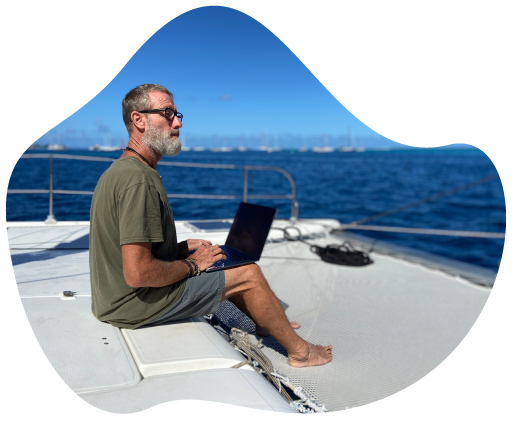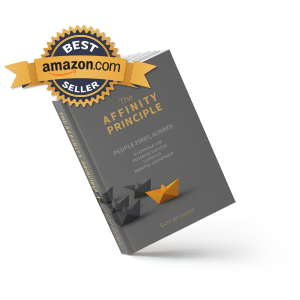The Office Is Where Your Laptop Is.


Grant Ian Gamble is an international business strategy and growth consultant, best-selling mindful leadership author and speaker. He works in a broad array of industries helping companies build teams, navigate change and drive growth. He has over 35 years of experience in the health and wellness sectors.
Similarly to the migration of retail to online, COVID has provoked a transition of thinking about where team members actually need to physically be in order to do their job well.
As we adjust our perceptions of what work looks like post COVID, there exists a gulf between what was and what will be when it comes to office geography.
Companies have already begun divesting themselves of offices and buildings they formally saw as essential in order to house their workforce. Conference rooms lie dormant and have been replaced by Zoom calls. The office phone system has similarly been replaced by cell phones, text messages and FaceTime.
I am familiar with this decentralized workspace, having personally spent many years on the road, working from airport lounges, toting a portable printer, relying on my trusty laptop and the internet to keep my work flowing, and presence felt by clients across a variety of timezones. I appreciate the benefits of being mobile and also the downside of these sometimes very isolated environments.
This is the dilemma companies face as they approach a more fractured workplace.
The benefits are proven for many roles to be fulfilled from home or a remote coworking space. Equally, there are many challenges that come with this dispersion of talent and team.
As such, companies, managers, team members and family units are all trying to adjust their expectations in this new work environment.
For companies, the possible financial upside of not maintaining the same degree of physical premises to house their team can be significant. Associated costs involved in supporting team members at home are typically a fraction of the cost of maintaining significant office infrastructure. The lost productivity associated with commutes alone offer a boon to companies.
This regained segment of team members’ days can be parlayed into spending more time with family and for recreation, which has proven benefits both physically and psychologically.
- Prior to COVID, 20% of team members that could work remotely worked from home.
- This number spiked to 71% in the Fall of 2020.
- 54% of these team members would prefer to work from home going forward.
For many team members, the added flexibility of working remotely can be life changing. Similarly, for some, it can be very challenging.
Herein lies the challenge that exists for managers and HR teams. As with many things, what suits one team member may well not suit another.
Myers Briggs would suggest that strong extroverts gain energy from being around other people, whereas strong introverts need alone time, or time with a limited number of people, to recharge. For the extroverts on your team, working from home may feel like a prison sentence. For your introverts, their productivity might improve as a function of reduced demand to be engaged with people during their workday.
This is just the tip of the iceberg when it comes to navigating dispersed working environments.
Much has been written around these issues and topics, but the relative newness of these changes in expectations and functions make it a challenging environment for companies, managers and teams.
I have been working with several companies to re-tool their work environments and as conversations and revelations emanate from these processes, it is evident to me that this needs to be an organic process and the many conundrums presented by this upheaval will not be solved overnight, or in a vacuum.
By engaging managers, department heads, team members, and even family members in the conversation, finding the sweet spot for your company and team may not be as elusive as it appears.
Resources to Help You Through Uncertain Times:
-
Strategies to Follow as You Re-Open or Re-Imagine Your Business in the New COVID-19 Reality
-
How to Transcend Troubling Times
-
4 Tips to Proactively Address the Stress of COVID-19
-
Change Management During Uncertain Times
-
26 Non-Negotiables, Opportunities & Tips for Surviving and Thriving During and After the COVID-19 Pandemic
-
30 Business Sectors That Are Booming During the COVID-19 Pandemic
-
Overcoming F.E.A.R. During COVID Uncertainty
-
Virtual Training During and Beyond COVID-19
-
Virtual Stand-Up: A Simple Communication Tool for You and Your Team During COVID
-
13 Tips to Help Your Business Survive the Coronavirus Pandemic
Let's Connect!
CUSTOMER EXPERIENCE & TEAM ENGAGEMENT: AFFINITY OS™ | WELLNESS INTEGRATION | MINDFUL LEADERSHIP: "THE AFFINITY PRINCIPLE"
0475 866 592

The Affinity Principle™ by Grant Gamble presents a formula for business success through a people-centric, mindful leadership approach.
PEOPLE FIRST, ALWAYS.

